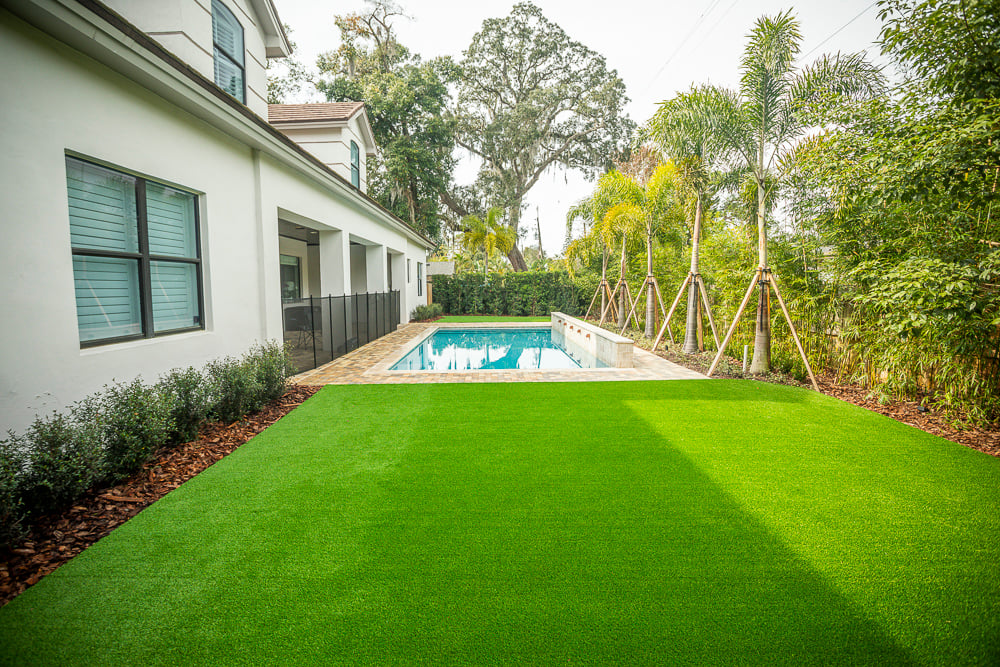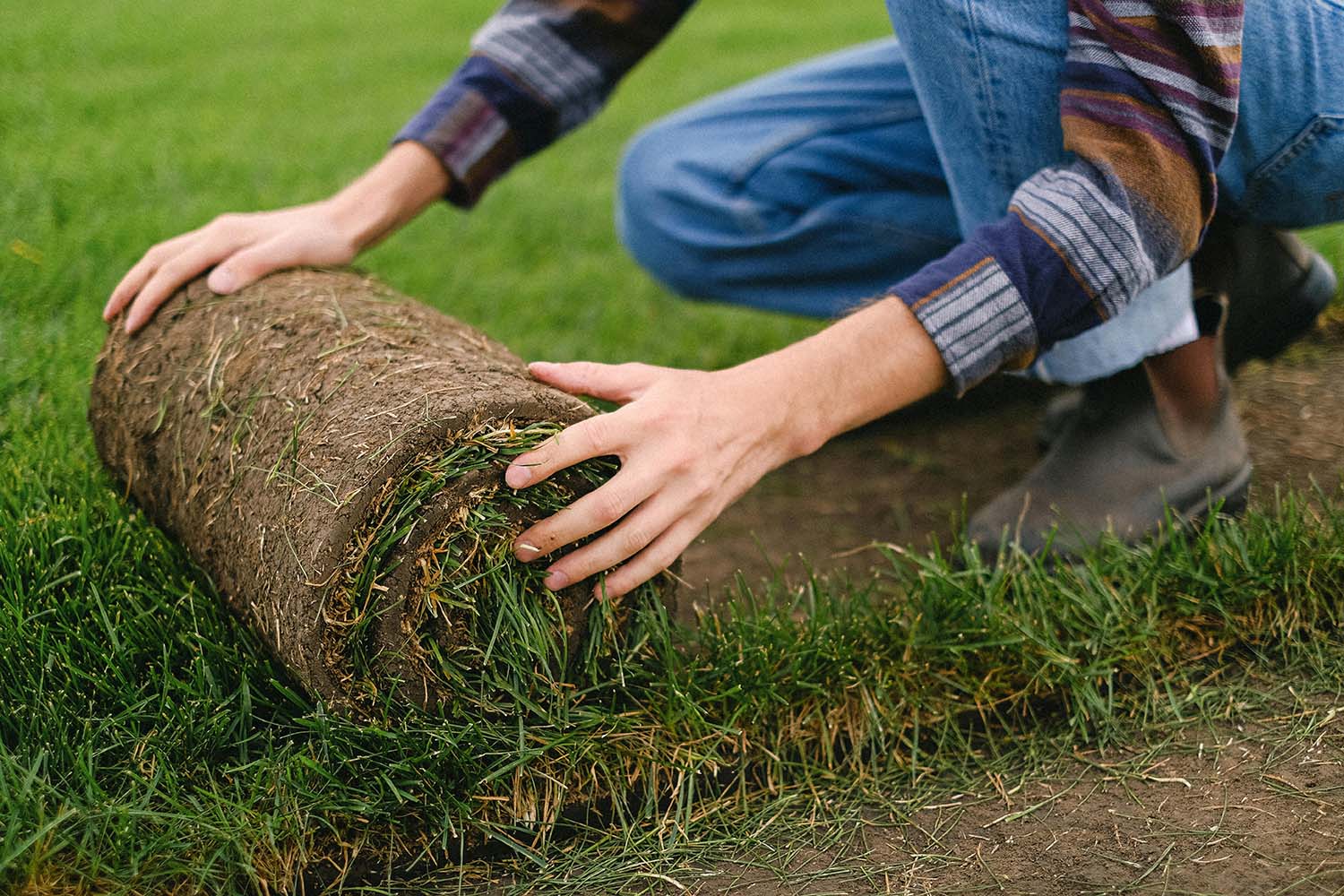Explore the Environmental Perks of Opting for Synthetic Grass Solutions
The fostering of fabricated turf remedies presents a compelling chance to resolve pressing environmental difficulties. By dramatically reducing water usage and reducing the application of unsafe chemicals, these options not only advertise lasting landscape design yet also protect regional ecological communities.
Water Preservation Benefits
One of the most considerable advantages of fabricated grass is its capability to conserve water. In comparison, man-made turf does not require watering, dramatically minimizing the general demand for water sources.
By removing the requirement for regular watering, synthetic grass contributes to lasting landscape practices and helps alleviate the ecological impact of extreme water intake. The conservation of water prolongs to the decrease of drainage, which can lead to dirt disintegration and waterway air pollution.
Additionally, the installment of synthetic grass permits districts and homeowners to designate water sources extra successfully, concentrating on essential uses such as drinking water and farming. The change in the direction of synthetic grass not just advertises accountable water usage but also aligns with broader ecological objectives targeted at protecting natural sources.
As areas significantly focus on sustainability, the water conservation benefits of artificial lawn offer a compelling case for its fostering in industrial and residential landscape design jobs.
Decreased Chemical Use
The change to man-made turf dramatically lowers the reliance on chemical therapies frequently used in all-natural lawn maintenance. Typical grass administration commonly includes the application of chemicals, fertilizers, and herbicides to advertise growth and control pests. These chemicals can present risks to human wellness, local wild animals, and the environment, adding to dirt and water contamination.
In contrast, synthetic grass removes the need for these unsafe compounds. As soon as installed, it needs marginal upkeep, mostly consisting of routine cleansing and infrequent infill replenishment. This reduction in chemical usage not just profits the immediate atmosphere yet additionally adds to wider eco-friendly stability. By lessening the launch of artificial substances into the environment, fabricated lawn promotes healthier soil and water supply.
Additionally, the absence of chemical overflow related to artificial grass installments aids protect regional rivers from contamination, sustaining marine life and keeping biodiversity. Artificial turf companies phoenix. As neighborhoods significantly focus on sustainable methods, choosing for synthetic grass provides a feasible option that lines up with environmental preservation objectives. With this shift, residential property proprietors can take pleasure in rich green spaces without endangering environmental health, leading the way for a much more sustainable future
Reduced Carbon Footprint

Moreover, the installation of synthetic grass can lead to significant water preservation. Natural yards call for considerable amounts of water for watering, which basics not just includes to the carbon footprint connected with water removal and treatment however likewise strains neighborhood water sources. On the other hand, fabricated lawn needs minimal upkeep, needing no watering, therefore dramatically minimizing water use and its associated energy costs.
Additionally, the durability of man-made lawn adds to its reduced carbon impact. With a lifespan of up to 15 years or more, the requirement for regular replacements is reduced, leading to much less waste and lower energy consumption in manufacturing and taking care of traditional grass alternatives. Overall, synthetic grass offers a lasting choice for eco mindful landscaping.
Habitat Preservation
Environment conservation is an important factor to consider in the argument over landscaping selections, specifically when contrasting synthetic grass to all-natural lawn. Natural grass yards commonly need comprehensive maintenance, consisting of the use of pesticides, herbicides, and fertilizers, which can adversely impact local ecological communities. These chemicals can seep into the soil and rivers, hurting native plants and fauna and interfering with regional environments.
In comparison, artificial lawn presents a possibility to decrease the eco-friendly footprint of landscape design. By selecting artificial turf, property owners can decrease the interruption of all-natural environments connected with typical grass treatment practices. Synthetic grass gets rid of the demand for dangerous chemicals, thereby safeguarding neighboring wildlife and maintaining the stability of bordering ecosystems. Furthermore, the installment of synthetic grass can result in the conversion of previous yard locations right into more biodiverse landscapes, such as pollinator gardens or native plant locations, which can support local wildlife.
Eventually, the shift to fabricated lawn not just conserves water and reduces maintenance initiatives however likewise fosters a more unified connection between human activities and the all-natural atmosphere, promoting environment conservation in the procedure.
Long-Term Sustainability
Long-lasting sustainability is a vital aspect in assessing the advantages of synthetic turf over traditional grass yards. Among one of the most considerable benefits of synthetic grass is its sturdiness; it can last up to 15-20 years with marginal maintenance, whereas all-natural lawn requires constant reseeding and substitute. This durability reduces the demand for continuous sources, such as water, plant foods, and pesticides, which are essential for keeping a healthy grass yard.
Additionally, synthetic grass adds to a decrease in carbon emissions connected with yard treatment devices. Traditional lawns often call for gas-powered lawn mowers, trimmers, and blowers, every one of which add to air pollution. Arizona artificial turf. In contrast, synthetic grass eliminates the requirement for such tools, promoting a cleaner setting
Additionally, the manufacturing of artificial grass significantly utilizes recycled materials, enhancing its sustainability profile. As makers take on green techniques, the environmental footprint of synthetic grass remains to lessen.

Conclusion
The fostering of synthetic grass options provides substantial ecological benefits, consisting of considerable water preservation, lowered dependence on hazardous chemicals, and a lower carbon footprint. Fabricated lawn help in protecting natural habitats by minimizing land disturbance and try this out promoting long-term sustainability through the use of durable materials. Collectively, these elements highlight the capacity of synthetic grass to contribute positively to environmental wellness and supply a viable alternative to traditional landscape design techniques in an increasingly resource-conscious globe.
In comparison, fabricated lawn does not need watering, considerably reducing the general demand for water sources. By reducing the launch of synthetic substances into the ecological community, fabricated grass promotes much healthier soil and water systems.
In addition, the installment of man-made turf can result in significant water conservation. In comparison, synthetic lawn needs marginal maintenance, requiring no watering, thereby substantially decreasing water usage and its linked energy costs.
